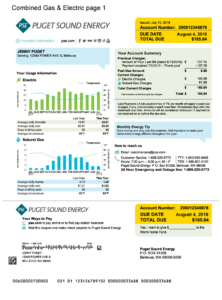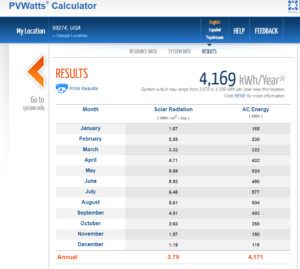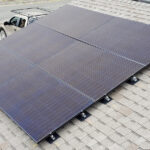Can “Just a Few Solar Panels” Really Power Your Whole House?
Can "Just a Few Solar Panels" Really Power Your Whole House?
How Many Solar Panels Do I Need?
 Finding the right size for a solar panel system for your home can be difficult due to the wide variety of choices available. It becomes even more complex when a salesperson guarantees that only a few panels will completely offset your electricity expenses, all in an effort to make a sale.
Finding the right size for a solar panel system for your home can be difficult due to the wide variety of choices available. It becomes even more complex when a salesperson guarantees that only a few panels will completely offset your electricity expenses, all in an effort to make a sale.
To evaluate a solar system design effectively, you need to have a basic understanding of your electricity usage and be willing to ask pertinent questions.
In Western Washington, the average home consumes anywhere between 7,000 and 12,000 kWh per year. The most powerful solar panels currently available are 744 watts and have an efficiency rating of around 24%. Assuming there is minimal shading, a 10-panel system of this size would likely suffice for a home with average or below-average electricity consumption. However, due to their high cost, large physical size, and them generally being available only for commercial and utility-scale systems, most solar companies opt for panels that are closer to the 400 watt range.
Proper Solar System Sizing
To correctly calculate the right size for your solar panel system, it’s essential to consider your specific electricity needs and consumption patterns. You may want to familiarize yourself with your electricity bills from the past year to get a better understanding of your average monthly usage. Additionally, taking into account any potential changes in your energy consumption in the future, like the addition of an electric vehicle, will help ensure that the system you invest in will meet your current and future energy requirements without any issues.
Be Sure You’re Getting the Right Size of Solar System
 Just like you would for any significant purchase, get multiple bids to ensure that you are getting a solar system that is correctly sized and priced fairly. And be sure one of them is from Fire Mountain Solar. When evaluating bids, pay close attention to the total system size, measured in DC watts (the industry standard for comparison), as well as the number and wattage of solar panels, efficiency ratings, and shading calculations. Any calculations performed to model your energy usage should be readily available, and sales representatives should be able to provide data on how shading is taken into account (you can even double check their numbers with free online resources like PVWatts).
Just like you would for any significant purchase, get multiple bids to ensure that you are getting a solar system that is correctly sized and priced fairly. And be sure one of them is from Fire Mountain Solar. When evaluating bids, pay close attention to the total system size, measured in DC watts (the industry standard for comparison), as well as the number and wattage of solar panels, efficiency ratings, and shading calculations. Any calculations performed to model your energy usage should be readily available, and sales representatives should be able to provide data on how shading is taken into account (you can even double check their numbers with free online resources like PVWatts).
Typically, the recommendations for system size between bids will be relatively similar to each other. If there are any discrepancies, don’t hesitate to ask the salesperson for an explanation. Furthermore, for projects of similar scale, the bids should consistently fall within a reasonable range of one another. If this is not the case, request a detailed comparison that clearly outlines the reasons for the differences in pricing. It’s important to note that it’s not only higher-priced bids that should raise concerns; significantly lower bids may indicate potential compromises in quality or shortcuts taken.
 Make the Right Choice for You
Make the Right Choice for You
Investing in solar panels is a significant decision, so it’s imporant to ask questions and seek clarification when needed. By carefully evaluating your electricity usage and asking the right questions, you can make an informed choice about the right size and design for your home’s solar panel system.
Learn more things like: How To Size A Grid Tie Solar System, Signs of Misleading Solar Contractors, on our website.
